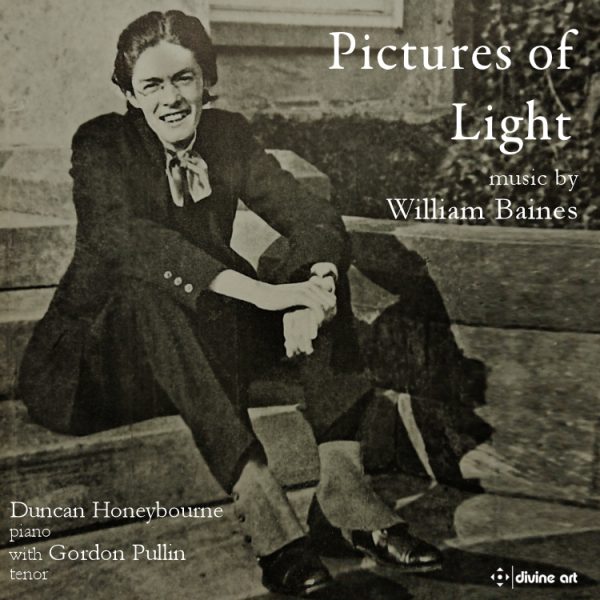Fanfare
This enterprising disc from Divine Art illustrates the sadly short-lived British composer who is new to this reviewer. So who is William Baines? Born in Yorkshire in 1899, he was conscripted towards the end of World War I. Just a few weeks later, he became ill with sceptic poisoning. He did recover by January 1919, but this left him physically damaged and vulnerable. On the positive side, it also matured him as a composer. He had taken piano lessons at an early age and then began formal training in Leeds, after which he was self-taught. Despite becoming better known around 1920—one reviewer called him simply “a genius”—and continuing to compose and perform, his health deteriorated further, and he died from tuberculosis in 1922 at the age of 23. He had managed to compose around 150 pieces in that short life, many of them for piano.
The disc opens with Paradise Gardens. This Impressionistic work was one of his first successes. Serene and poised describes the work and the excellent playing of the pianist, Duncan Honeybourne. Tides, consisting of two dramatic tone poems, was inspired by the sea, especially around the Yorkshire coast, near where Baines had lived. Baines himself said, “I am like Debussy, I have learnt more from the wind than from any master.” There is a parallel between these pieces and Benjamin Britten’s later Peter Grimes in that they both use the North Sea to color their work. Baines named the piece after the area of Yorkshire known as Flamborough Head. The Eight Preludes—one of the many first recordings on this CD, including Pictures of Light and the Five Songs—are from 1919 and very dramatic. Six were constructed by pianist Robert Keys from various manuscripts left by Baines, according to the excellent notes. They were only given a first broadcast performance on the BBC in 1956. The last piece, “Eroica,” is wild indeed. The Five Songs are sung by tenor Gordon Pullin, who should have recorded these some years before. He is a specialist in English song, and his diction is excellent, and he puts the songs across powerfully. However throughout he is hardly steady, and this reduces much of the impact of these songs. The last, “Morning,” set to a text by Rabindranath Tagore, is a quicker song and is not a pleasant listen. Robin Walker, a composer who was born in Yorkshire like Baines, wrote the last piece after a pilgrimage he made to the grave of William Baines during the centenary of his birth in 1999. It is a highly emotive piece and splendidly played by Honeybourne.
Divine Art have brought this composer out of obscurity, hopefully to reach a bigger audience. Honeybourne is both gripping and stylish in his playing throughout these testing compositions. It is sad that the songs stand out for the wrong reasons. Excellent and very helpful notes and texts are supplied by the artists, together with clear and warm sound. This is certainly recommended for all those who wish to expand their knowledge of forgotten British composers.
@divineartrecordingsgroup
A First Inversion Company
Registered Office:
176-178 Pontefract Road, Cudworth, Barnsley S72 8BE
+44 1226 596703
Fort Worth, TX 76110
+1.682.233.4978












